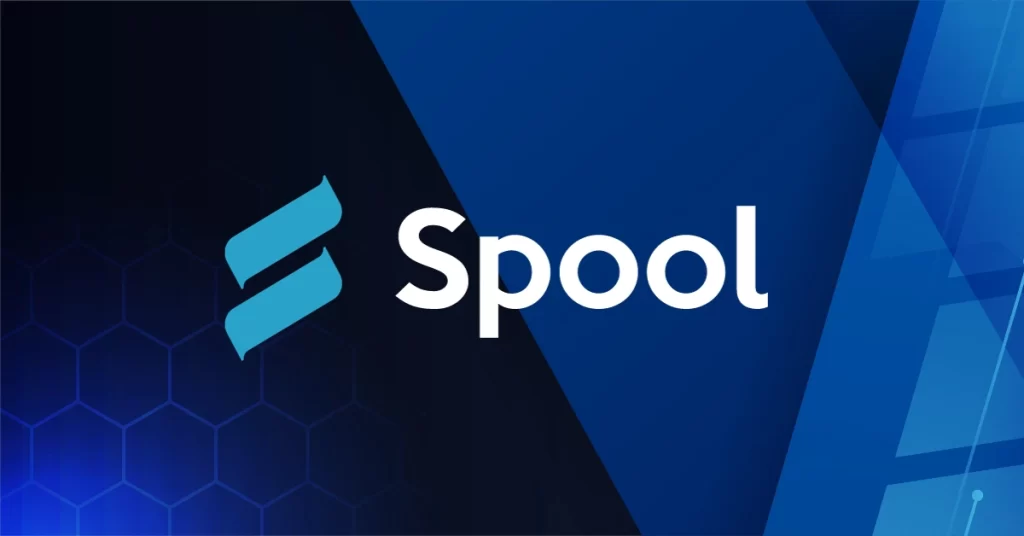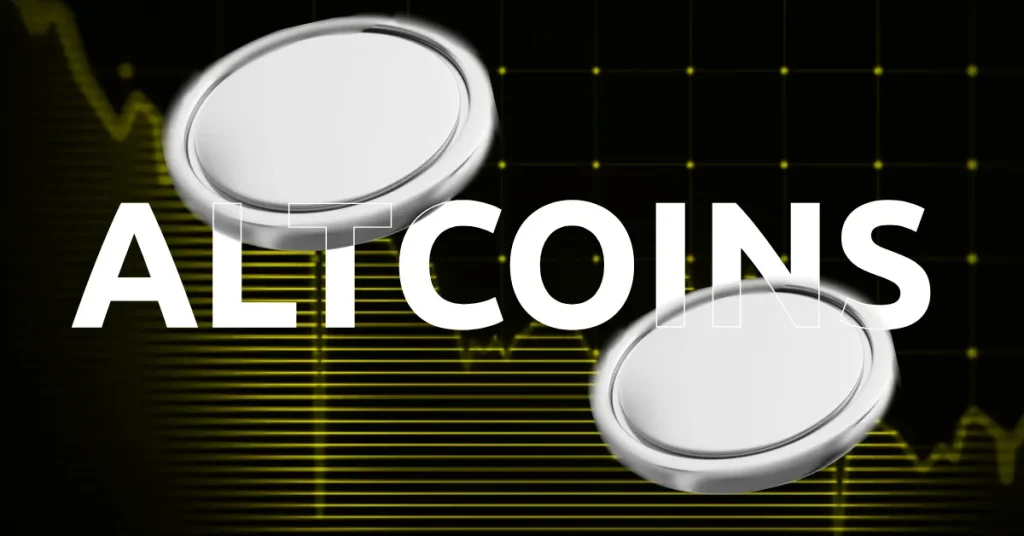
The post Spool’s V2 upgrade puts institutions in the DeFi driver’s seat appeared first on Coinpedia Fintech News
With scandalous lawsuits and Bitcoin ETF filings filling up a majority of the crypto industry’s headlines this year, it may look as though the decentralized finance (DeFi) sector was put on the back-burner while seemingly juicier developments have unfolded.
That’s not to say DeFi stayed completely under the radar in 2023. Alongside its own turbulent stories and market fluctuations, there have been numerous positive, albeit quieter developments in the space. A veritable explosion in liquid staking has granted a new way to grow wealth through DeFi in addition to unleashing a whole slate of new use cases. Additionally, new efforts to spearhead scalability through layer-2 protocols and zkRollups have set the foundation for continued growth.
But overall, 2023 has shown developers and budding projects that being out of the spotlight can sometimes be a positive. And for innovative DeFi projects, the respite from public scrutiny has allowed for major development and building to happen.
Aside from new technical strides, the DeFi sector as a whole has zeroed in on finally starting to bridge the institutional gap. That has led to projects making meaningful steps to onboard institutional players who are still showing a clear interest in crypto. Banks and other legacy institutions that can see beyond crypto’s industry drama stand to gain many benefits from decentralized technologies, but they just need a bit of push and products that are tailored to their needs.
To answer that call for an all-encompassing DeFi platform that bridges that gap, one DAO has stepped up to the plate to bring institutions the tools they need to not just survive, but thrive in the DeFi realm.
Launching this week, Spool, the DAO building a platform for institutions and users to build customizable risk-managed DeFi products, deploys its rigorously developed V2 platform upgrade— made specifically with institutions in mind. Spool’s new platform expands its original DeFi infrastructure and tools with heightened decentralized access and new capabilities. Institutions of all sizes can now leverage its slate of new features and interface updates to build, manage, and explore DeFi products with unparalleled flexibility, risk reduction, and security.
“We are incredibly proud to launch Spool V2 after countless months of our team developing, testing, and listening to the feedback and needs of our institutional partners,”
says Philipp Zimmerer, Lead of Token Strategy of Spool.Following a successful closed beta, Spool’s V2 upgrade reimagines institutional DeFi access and operational capabilities through increased customization, comprehensive risk assessment, and user-friendly white-label features that address the most pressing pain points of banks and legacy institutions.
To meet this institutional need, Spool now provides a completely rebuilt platform for risk-managed and automated DeFi yield. But don’t mistake this for a simple UI overhaul, the V2 update brings an entirely new arsenal of tools and features that are tailor-made for institutional DeFi adoption.
Created from the ground up to be faster, more efficient, more composable, and easier to use than its predecessor, V2 represents a leap for Spool and institutions expanding their DeFi presence. The upgrade expands upon Spool’s core offering and introduces several key features to maximize the effectiveness of institutional DeFi investment.
For traditional financial institutions, regulatory compliance is a cornerstone of their operations to function properly. In the crypto realm, where regulations and rules are in a constant state of flux and deliberation, a product that can stay abreast of any sudden shifts is critical to onboarding institutions into the space. Spool’s team of developers has always made regulatory compliance a priority, ensuring that institutions using its platform and features remain in line with shifting regulations, no matter the geographic location.
By enabling the codeless creation of financial services and products backed by audited financial primitives, institutions that don’t have DeFi-specific teams are now able to easily access DeFi. Making that a reality significantly eases the burden on institutions that want to enter the decentralized space without having to completely shift their operational capacity and workforce allocations.
Here is the full rundown of Spool V2’s key features and enhancements, ready for institutions to implement and benefit from at launch:
- Multi-Asset Smart Vaults: Institutions creating Smart Vaults can now build them to contain a range of yield strategies using multiple assets. Multi-asset Smart Vaults enhance functionality in addition to Spool’s classic auto-swapping and auto-rebalancing capabilities. Investors can simply create or pick an existing Smart Vault that matches their investment preferences, and send the assets they have available. The assets are then automatically swapped and implemented in audited and battle-tested smart contracts to attain the best yields possible while allowing funds to be withdrawn at any time.
- Smart Vault Guards: Institutions building Smart Vaults can now dictate which users can deposit or withdraw from the Vault based on specific criteria, mirroring traditional investment funds. This helps institutions tailor DeFi offerings not only to regulatory compliance but to their specific client needs as well. Institutions can create KYC and AML-compliant Smart Vaults, for example, and only allow access to vetted investors through whitelisted wallets. Other parameters include NFT or Token Gating (where a user must hold a specific NFT or token amount to access the vault), and Time Locks.
- Actions: Spool builders can now implement customizable actions tied to user activities such as entering or exiting a Smart Vault that is configured during its creation. Actions help support institutions by creating a framework that feels familiar to traditional finance and includes features such as deposit or withdrawal fees, deposit insurance fees, and automated asset swaps that help streamline the once-manual process for yield farming.
- Liquid Staking Derivatives (LSDs) Support: LSDs are tokens issued in return for staking cryptocurrency through a staking provider. This comes in handy for networks such as Ethereum, where validators must hold a minimum of 32 ETH to access staking and validator privileges. LSDs also allow users to withdraw staked ETH, which validators cannot do. As strategies using LSDs become more prevalent, adding support in V2 enables greater convenience to access them.
- Advanced Automation: One of DeFi’s major obstacles lies in manual asset management within yield farms. V2 improves upon Spool’s original automation features while maintaining decentralization and self-custody. Once assets are within a Smart Vault portfolio, V2 automatically rebalances them between various strategies configured in the Vault. Spool also now offers automated collateral conversion, meaning clients investing in a Smart Vault can utilize any underlying asset they have available. Spool automatically converts the asset before investing, granting increased ease and choice.
- Deposit NFTs (dNFTs): D-NFTs provide users with an immutable NFT receipt of their Smart Vault deposits, enabling the withdrawal of funds. ERC-20 Smart Vault Tokens (SVTs) are created by burning D-NFTs and act as yield-bearing stablecoins, which can be easily transferred or traded on a secondary market, creating a new liquid financial instrument.
Among these new features, Spool V2’s completely redesigned interface allows institutions and asset managers to have a birds-eye view of their Smart Vault portfolio with the ability to oversee everything at once. The platform champions accessibility while providing the comprehensive tools and oversight that institutions require. This includes tools for easily white-labelling Smart Vaults for client access with their branding and unique insights into Smart Vault performance based on customizable KPIs.
On the impact that Spool’s V2 update will have on the decentralized finance sector, Zimmerer adds: “This lands at a pivotal moment in crypto in a year that has been all about responsibly rebuilding the industry and forging a new path for DeFi. Improving access, flexibility, and security will not only garner further institutional support but set a new standard for what DeFi can make possible for any investor.”
The upgrade’s capabilities set the stage for large-scale institutional partnerships in the pipeline for Spool, following a steady stream of integrations and collaborations leading up to its launch— including DeFi players such as Staking Rewards and Rocket Pool.

 1 year ago
99
1 year ago
99














 English (US) ·
English (US) ·